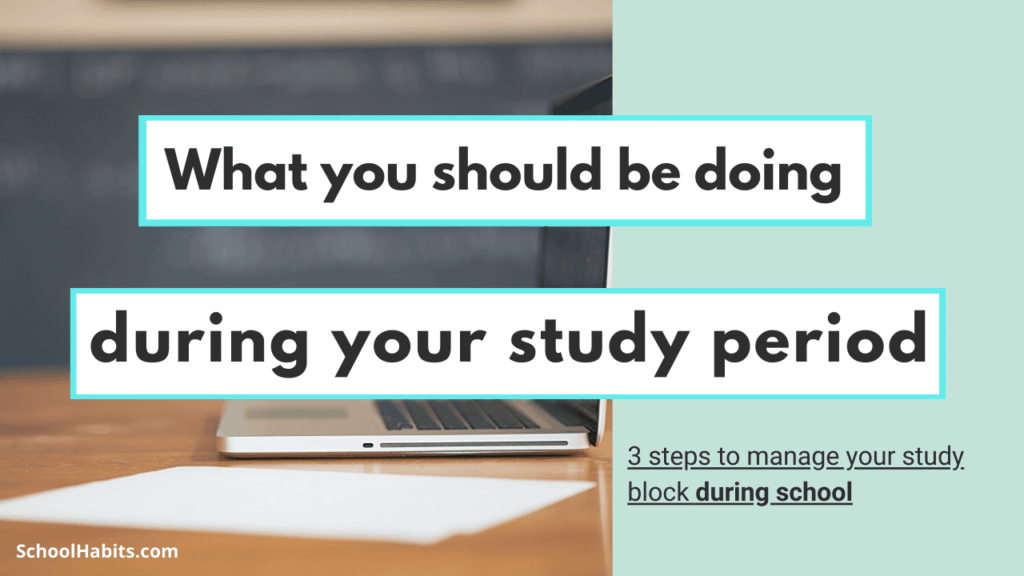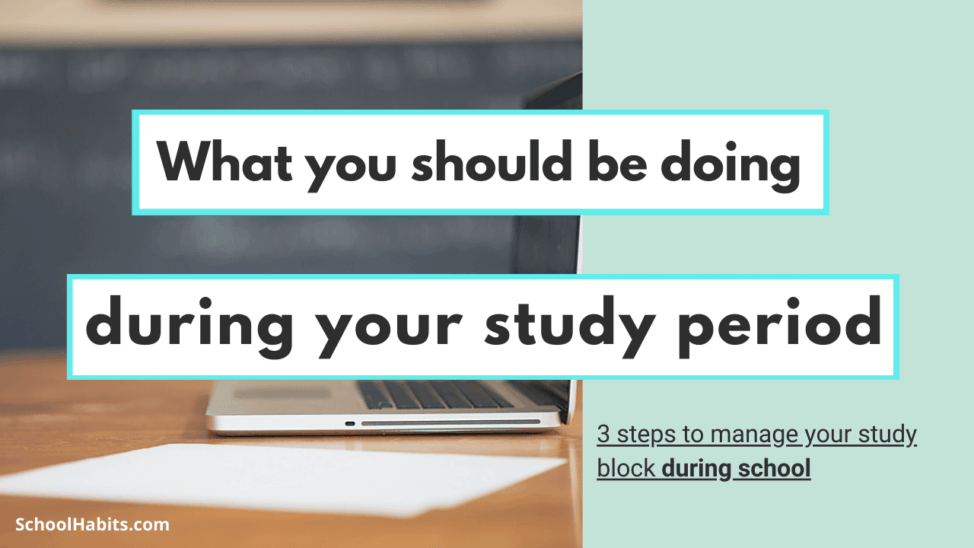
By Katie Azevedo, M.Ed.
Many high school students have a free period during the school day. This time is often called a study, a WIN block, or even an academic support period.* Whatever your school calls it, it’s a chunk of time during the day when you have more freedom and less class structure.
If you’re lucky enough to have a study period in the middle of your school day, you should take advantage of every single second of that class. Sure, your friends might be in there with you, and obviously your friends are way cooler than your English essay (I don’t mean that sarcastically. I’m for real.). But if you’re not using your study period to do all the right things, then you’re missing out on a huge chance to make your life easier. Actually though.
3 tips for what you should be doing during your study period:
1. Plan.
Use the first 5 minutes of class to come up with a plan for the study period. The minute you sit down, take out your assignment notebook or a sheet of paper. Or use this printable here. For each class, write down all of the work you have to do, including homework, long-term projects, or studying for upcoming tests. If you are significantly behind and have more than 3 missing assignments in a class, then just list 3; any more than that would be overwhelming for this purpose. (Reality check: if you are missing more than 3 assignments in a class, you are significantly behind.)
2. Survey and prioritize your tasks.
Look at all the tasks you wrote down. Without overthinking, circle the 3 most important items on your list. (Another reality check: sometimes our “overthinking” is actually straight-up procrastination, but we feel better about ourselves when we call it overthinking.) To determine which 3 items to focus on, think about what’s due the soonest, what’s worth the most points, and these other prioritization tips.
3. Work.
Get to it. Get the job done. Start with one of the items on your list and just get at it. You may not get to all 3 tasks; in fact, you might just get to one. That’s all fine, as long as you’re doing real work. The reason you circled 3 items in step 2 is so that if you do finish a task, you don’t have to waste valuable time thinking what should I do now? Instead, do all your planning up front so that your next task item is already decided.
Other tips for managing your study period
1. Avoid the temptation to use your time as a social hour. Again, I get it that your friends are way cooler than your work. I won’t argue that they’re not. But you’re going to see your friends in other classes, in the cafeteria, and after school. You’ll thank yourself when you have an hour less of homework each day because you did it in school.
2. Block out distractions with headphones. If you have headphones on, you’re less likely to be distracted, and your friends will be less likely to bother you.
3. If you can, choose a quiet location. If you’re given the freedom to choose where to spend your study period, pick a location that’s good for productivity, like a nook in the library or an empty classroom. Obviously there are COVID-19 limitations to where you’re allowed to go in school, but do what you can.
4. Avoid splitting up the study period with breaks. Most middle and high school classes are less than 55 minutes long, and by the time you settle in and make your plan, there are less than 50 minutes left; most students can work straight for 45-50 minutes without a break. I suggest, then, that you go to the bathroom before class, or during the last few minutes of class – not in the middle. Avoiding a break in the middle reduces transition time and cognitive residue from context switching (switching back and forth between unrelated activities).
* A true academic support period is a special education service that is mandated by a student’s IEP. A true academic support class should never be an unstructured “homework club.” But unfortunately, sometimes this happens.

